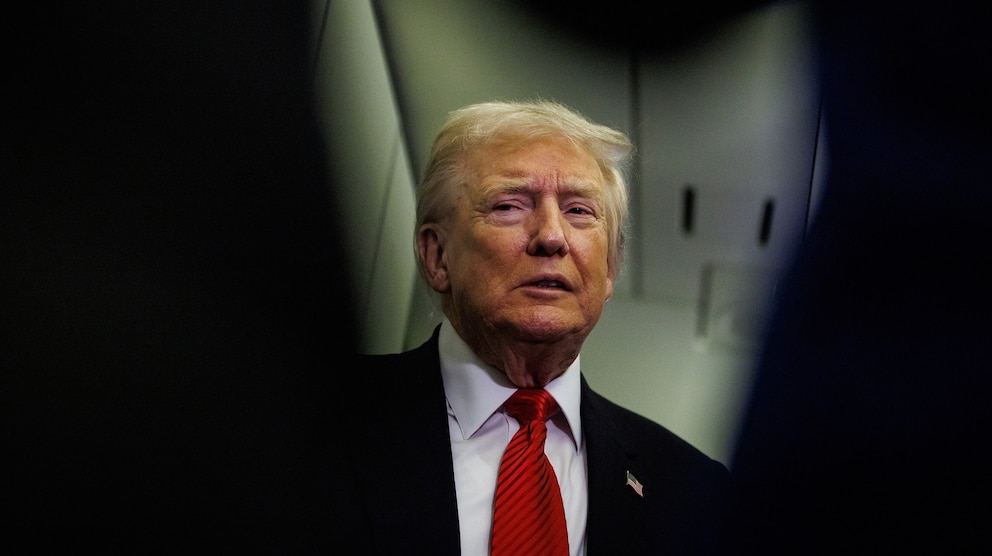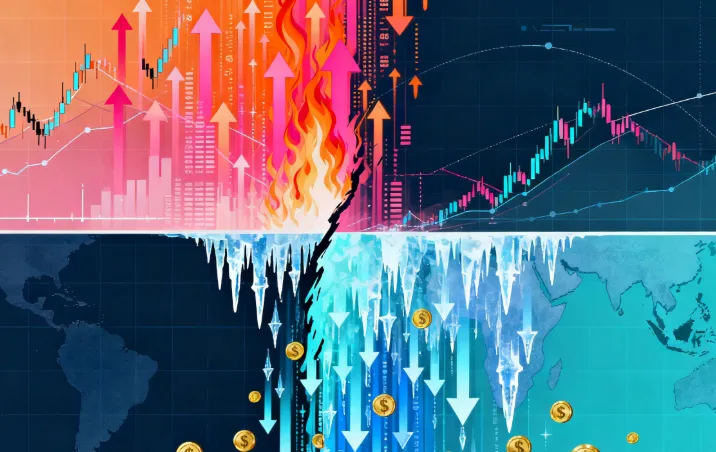Written by: Luke, Mars Finance

On November 5th, Beijing time (Wednesday), the market is facing a sudden multiple blow.
In the early hours, Bitcoin unexpectedly fell below the $100,000 mark, with $2 billion in long leverage evaporating within hours. Panic quickly spread from the crypto market to Asian stock markets, with the South Korean KOSPI index plummeting 4% at the open.
What is the market panicking about? Chris Weston, an analyst at Pepperstone, pointed out succinctly: "As we approach Nvidia's earnings report on November 19, the market lacks short-term catalysts."
This is not speculation, but a consensus. Just today, the Monetary Authority of Singapore (MAS) unusually released a "Financial Stability Assessment Report," publicly warning: "The high valuations in the tech sector pose potential risks… If the market's optimism about AI generating returns wanes, it could trigger a severe adjustment in the broader stock market."
CEOs from Goldman Sachs and Morgan Stanley also joined the chorus this week, questioning whether the sky-high valuations driven by AI can be sustained.
Crypto, as a liquidity proxy for the high-leverage AI narrative, was the first to be sold off by smart money. The $2 billion liquidation is merely a prelude to the consensus that AI growth has peaked.
As the market falls into what MAS describes as "disorderly adjustment," an ancient voice inevitably emerges: "Regulation must be strengthened!"
The Panic Vacuum: Why Is No One Buying the Dip?
Logically, after the $2 billion in leveraged liquidations, the market should have seen a technical rebound or bottom-fishing. But today, the market is filled with "extreme fear."
Why?
Because this "severe adjustment" triggered by the AI bubble precisely proves that the market urgently needs regulatory intervention to "protect investors." However, on the very day the market most needs "regulatory certainty," tonight, the Supreme Court is hearing a case that will determine "who has the authority to regulate."
The market is caught in a panic of "regulatory vacuum": we know regulation is coming, but we do not know "who" will come, nor do we know how much power this "who" will have.
Everyone is frozen, waiting for a verdict from Washington.
The B-Side of the Tariff Case: The Fate Trial of the SEC
Tonight (November 5th, Beijing time), the U.S. Supreme Court will hear the Trump tariff case.
On the surface, this is a political-economic drama about whether the president has the authority to unilaterally impose global tariffs under the International Emergency Economic Powers Act (IEEPA). Trump claims it concerns the life and death of the nation, while the White House firmly believes the president must have this power.
But for the crypto industry, the amount of tariffs and whether the Treasury will refund $100 billion are not the key points.
The key lies in what the challengers (and the federal circuit court) use to challenge Trump. The answer is: "Major Questions Doctrine (MQD)."
The "Major Questions Doctrine" is a powerful tool in the U.S. judicial system. It stipulates that when an administrative agency (such as the EPA, SEC, or the president) attempts to take action on a matter of significant economic and political importance, it must have explicit authorization from Congress.
You cannot "creatively" interpret legal texts.
Does this sound familiar?
This word for word is the core legal argument that Coinbase, Kraken, and a16z have used to counter the SEC over the past two years.
Coinbase's Chief Legal Officer Paul Grewal has repeatedly stated in court (in essence): The SEC is relying on antiquated securities laws from 1933 and 1934, and Congress never explicitly authorized the SEC to regulate cryptocurrency, a new and significant issue worth trillions of dollars.
Therefore, tonight's tariff case in the Supreme Court has evolved into a proxy war for the crypto industry against the SEC.
Gorsuch's Textualism and the Surreal Alliance
The outcome of this war may very well rest in the hands of the three justices appointed by Trump, especially Neil Gorsuch.
Gorsuch is a staunch textualist and an advocate of the non-delegation principle. He fundamentally despises administrative agencies (which he calls administrative monsters) exceeding congressional authorization and "legislating" on their own.
The material mentions that critics point out that the IEEPA does not contain terms like tariff or duty; the president is only authorized to "regulate imports." Gorsuch is likely to seize on this point, believing the president's actions represent an unprecedented expansion of power.
In fact, it was Gorsuch and Chief Justice Roberts who successfully limited the power of the EPA in the 2022 case of West Virginia v. EPA using the "Major Questions Doctrine." This case is the "Holy Grail" for the legal teams in the crypto industry.
This has led to an extremely ironic and surreal alliance:
Coinbase and others (typically seen as advocates of free markets and Republican ideals) must today stand opposite Trump, alongside critics they may not usually agree with.
They must silently pray: hoping Gorsuch, Barrett, and Roberts will join forces to invoke the "Major Questions Doctrine" again, ruling that Trump's (the executive branch's) abuse of power in imposing tariffs is illegal.
Conclusion: A "Sure Loss" Victory
For the crypto industry, tonight's ruling (though not immediately announced) will profoundly impact the regulatory landscape for the next decade.
Best Outcome (Trump Loses): If the Supreme Court rules that the president cannot creatively interpret the IEEPA to impose tariffs, as this constitutes a significant issue that Congress never explicitly authorized. Then, the SEC will also find it almost impossible to persuade the same group of judges to allow them to creatively interpret the 1933 securities laws to regulate cryptocurrency. This would be the ultimate precedent for Coinbase against the SEC.
Worst Outcome (Trump Wins): If the Supreme Court (especially Kavanaugh) adopts the argument of a national security exception, asserting that the president (the executive branch) has powers that exceed Congress in the face of economic emergencies. Then, the SEC will receive a blank check. The SEC chair could similarly argue that the volatility of cryptocurrency (like today's $2 billion liquidation) poses a threat to investor protection and national economic security, thus necessitating SEC intervention.
This script is indeed a bit hard to bear.
The market is bleeding from the burst of the AI bubble, while the survival of the crypto industry hinges on a legal debate about tariffs. Tonight, Washington will decide the fate of Coinbase and others.
免责声明:本文章仅代表作者个人观点,不代表本平台的立场和观点。本文章仅供信息分享,不构成对任何人的任何投资建议。用户与作者之间的任何争议,与本平台无关。如网页中刊载的文章或图片涉及侵权,请提供相关的权利证明和身份证明发送邮件到support@aicoin.com,本平台相关工作人员将会进行核查。




